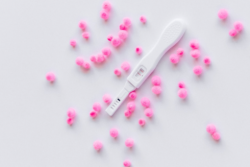It’s not a surprise that eating a “standard Western diet” isn’t good for our health. We’re referring to a diet that includes a lot of fast food and processed and packaged foods.
Short term, a diet like this can cause gas and bloating, or feelings of still being hungry even after a meal. Long term, there are major links to obesity, diabetes, and chronic inflammation.
But what about right now–if you’re eating fast food a few times a week, or even once a week regularly, will that actually impact your fertility?
A Fast Food Diet and Your Fertility
There are a few things at play here. Let’s break it down:
- Vaginal and uterine health: What you eat acts as fuel for your gut microbiome, which is associated with your vaginal and endometrial microbiome.
- Poorer nutrient metabolism/absorption: Low fibre diets increase intestinal inflammation and can lead to chronic low-grade inflammation in the body.
- Inflammation and over-eating: Processed foods contain compounds that cause even more inflammation and reduce feelings of satiety.
- Abnormal hormonal control: Regular consumption can increase body fat accumulation. Excess body fat will have a hormonal effect and can lead to problems with insulin signalling, follicle (egg) maturation, and excess estrogen levels.
First, it’s important to understand what processed foods are and what happens when they enter our bodies.
When foods are industrially processed, they are broken down way more than our digestive tract intended for consumption. For example, when we consume vegetables and legumes, the plant’s cell walls are fairly tough–way tougher than animal cell membranes. Some of these cell walls become ruptured when we chew our food, but many aren’t fully broken down, and some fibres, like cellulose, don’t get broken down at all. This is what our beneficial or symbiotic gut bacteria love.
Specifically, the bacteria in the colon are used to seeing the least broken down fibres, since these foods travel all along the intestines without changing much. We just don’t have the enzymes to break them up. And the healthy bacteria in our colons are happy with this. They use other, soluble, fibres for food.
Soluble fibres–like psyllium and those found in beans and legumes–are those that are typically fermentable by bacteria. This is the prime food choice of many helpful bacterial species in our bodies. When bacteria are happy and get the proper fuel, they start producing compounds that keep us in better health. One of those types of compounds is called “short-chain fatty acids” (SCFA). SCFAs help decrease the growth of pathogenic bacteria; they serve as an energy source for cells in the colon, and they can help to decrease inflammation.
Meanwhile, insoluble fibres, like cellulose, reach the colon intact. We need this too: cellulose helps protect against colon inflammation. Without insoluble fibres, we increase the risk of cell breakdown in the intestines. The cells that are affected by this are the ones that secrete a protective mucus (goblet cells and crypts). Without that mucus, we’re at greater risk for intestinal damage and inflammation.
Fibre and Fertility
But let’s get back to fertility here–there are multiple problems. When we consume a diet that lacks these fibres, we are causing changes in the microbiome (the bacterial diversity and composition in our body). This can lead to more pathogenic bacteria and more inflammation. But it also affects our ability to digest and absorb nutrients. We don’t want those prenatal vitamins going to waste because your body can’t metabolize or absorb the nutrients properly. Meanwhile, changes in gut microbiome composition can change the microbiome of the vagina.
So eating all those low-fibre, sugary treats (including hamburger buns and white rice) on the regular will cause different bacteria to flourish because they’re being supplied by a vast amount of liberated sugar that shouldn’t be there. Additionally, yeast loves sugar, so we increase the risk of a candida infection and/or bacterial vaginosis. We also care about the endometrial microbiome as this will impact the implantation of an embryo.
Everything you put into your body has an impact on your entire system, including your fertility. We are not just single living organisms — we are hosts to billions and trillions of little living microbes. And these microbes have access to our immune, hormonal and nervous systems, so it’s important that we treat our little micro friends well.
Artificial Sweeteners and Fertility
What about artificial sweeteners? Can I keep drinking my diet soda?
No, in fact, we’re finding that artificial sweeteners also change the microbiome, and not for the better. They interfere with proper sugar balance and affect insulin levels and sensitivity. This is one of the key factors in polycystic ovarian syndrome (PCOS). Studies have found that women with PCOS tend to have altered microbiomes, but also that excess testosterone levels are exacerbated by insulin. Increased amounts of fat tissue from following a Western diet keep the dysregulated hormonal cycle going.
Bread, Baked Goods and Fertility
Are all bread products bad for me?
The short answer is no. There are definitely healthier options for baked goods, but we need to pay more attention to the fibre content and the flours/ingredients listed. Remember, processed foods are heavily milled, removing all or most fibre content. Cell walls are busted wide open and the nutrients and compounds within can become exposed. That increased surface area means less protection from contamination. But contamination doesn’t just mean the presence of bacteria. The bacteria could be dead or killed off during processing, but certain compounds from bacterial cell walls, such as lipopolysaccharides (LPS), can still be present.
Processed foods, especially breakfast cereals, are not just super-milled, but they require high temperatures and high pressure. These heat treatments can cause chemical reactions and the production of advanced glycation end products (AGEs). AGEs are compounds that can cause insulin resistance and immune cell (B-cell) toxicity. They accumulate with increased cooking time, temperature, and the absence of moisture; all of which occur in processed packaged foods. These will also serve as food substrates for particular bacteria in the intestines and can therefore cause changes in the microbiome composition.
Whole Foods and Fertility
Eating whole foods means we take whole ingredients, chop or prepare them in our kitchen and cook them relatively soon after preparation. Preparing food in this way ensures freshness, less oxidation, and upon consumption, allows the right proportion of cell walls to be ruptured. This will provide the proper fibre and carbohydrate load to fuel our beneficial gut bacteria.
Meanwhile, including more vegetables, especially leafy greens, helps maintain the protective mucous layer in our intestines, and keeps us regular. Bowel regularity is key for fertility since it’s a means of removing toxins, metabolites, and other waste products from our bodies.
Fiber-Rich, Fertility Boosting Recipes
Eating fast food on rare occasions likely won’t blunt your fertility, but it probably won’t make you feel great. Now is the time to treat your body well. Aim for about 25-30g of fibre per day. What that could look like:
1 piece flax-bread toast 5g
1 avocado 10g
1 Apple 4.5g
2 cups baby kale 4g
1 cup broccoli 5g
Or
2 pieces ancient grain bread 10g
1 pear 5.5g
½ cup cooked lentils 7g
1 cup kale 2g
10 almonds 2g
½ baked potato 2g
Each of these yields 28.5g of fibre. It all adds up as long as we remember to include these foods in our diet.
To learn more about how you can support your fertility with preconception care, or to book an online appointment with a Conceive Health ND, contact us today.









